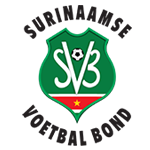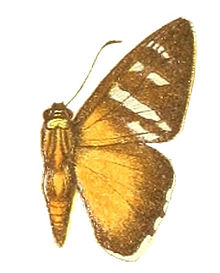
Suriname, officially the Republic of Suriname, is a country in northern South America, sometimes considered part of the Caribbean and the West Indies. Suriname is a developing country with a medium level of human development; its economy is heavily dependent on its abundant natural resources, namely bauxite, gold, petroleum, and agricultural products. Suriname is a member of the Caribbean Community (CARICOM), the United Nations, and the Organisation of Islamic Cooperation.
After the creation of the Statute of the Kingdom of the Netherlands, the Royal Netherlands Army was entrusted with the defence of Suriname, while the defence of the Netherlands Antilles was the responsibility of the Royal Netherlands Navy. The army set up a separate Netherlands Armed Forces in Suriname. Upon independence in 1975, this force was turned into the Surinamese Armed Forces. On February 25, 1980, a group of 15 non-commissioned officers and one junior officer, under the leadership of sergeant major Dési Bouterse, staged a coup d'état and overthrew the Government. Subsequently, the SKM was rebranded as the National Army.

Paramaribo is the capital and largest city of Suriname, located on the banks of the Suriname River in the Paramaribo District. Paramaribo has a population of roughly 241,000 people, almost half of Suriname's population. The historic inner city of Paramaribo has been a UNESCO World Heritage Site since 2002.

Suriname is divided into 10 districts.

The Suriname national football team represents Suriname in international football. The team is controlled by the Surinamese Football Association, which is a member of CONCACAF.

Carib or Kari'nja is a Cariban language spoken by the Kalina people (Caribs) of South America. It is spoken by around 7,400 mostly in Brazil, The Guianas, and Venezuela. The language is currently classified as highly endangered.
Saramaccan is a creole language spoken by about 58,000 people of West African descent near the Saramacca and the upper Suriname River, as well as in Paramaribo, capital of Suriname. The language also has 25,000 speakers in French Guiana and 8,000 in the Netherlands. It has three main dialects. The speakers are mostly descendants of fugitive slaves who were native to West and Central Africa; they form a group called Saamacca, also spelled Saramaka.
Neacomys paracou, also known as the Paracou neacomys or Paracou bristly mouse, is a rodent species from South America in the genus Neacomys. It is found in northern Brazil, French Guiana, Guyana, Suriname and southeastern Venezuela.

Couratari is a genus of trees in the family Lecythidaceae, first described as a genus in 1775. They are native to tropical South America and Central America.
Nectomys rattus, the small-footed bristly mouse, Amazonian nectomys, Amazonian mouse, or common water rat is a species of rodent in the genus Nectomys of family Cricetidae. It is found in Brazil, Colombia, French Guiana, Guyana, Suriname, and Venezuela, where it lives in a variety of habitats including lowland tropical rainforest, cerrado and caatinga. It is mainly found in areas close to water. It was recognized as distinct only in 2000 and its limits with other Nectomys, including Nectomys apicalis and Nectomys squamipes, remain unclear.

Suriname first participated at the Olympic Games in 1960, and has sent athletes to compete in most Summer Olympic Games since then. The nation missed the 1964 Games, and also participated in the American-led boycott of the 1980 Summer Olympics. Suriname has never participated in the Winter Olympic Games. The country has won two Olympic medals, both by swimmer Anthony Nesty.
Stoelmans Eiland Airstrip is an airstrip serving Stoelmanseiland, an island on the eastern border of Suriname.
Amatopo Airstrip is an airstrip located near Amatopo in Suriname.

Tarsoctenus is a genus of Neotropical butterflies in the family Hesperiidae, in which it is placed in tribe Entheini.

Suriname made its Paralympic Games début at the 2004 Summer Paralympics in Athens, sending two athletes to compete in the shot put. The country had a single representative in 2008 - a male sprinter. Suriname has never taken part in the Winter Paralympics, and has never won a Paralympic medal.

Suriname was a constituent country of the Kingdom of the Netherlands between 1954 and 1975. The country had full autonomy, except in areas of defence and foreign policy, and participated on a basis of equality with the Netherlands Antilles and the Netherlands itself in the Kingdom of the Netherlands. The country became fully independent as the Republic of Suriname on 25 November 1975.

China-Suriname relations are the bilateral relations between the Republic of Suriname and the People's Republic of China. China has an embassy in Paramaribo. Suriname has an embassy in Beijing.
Henri Alwies Airstrip, also known as Henri Alwies Airfield or Henri Alwies Vliegveld, is in the Saramacca district of Suriname. This is one of the newest airports in Suriname, in use since April 5, 2012.









